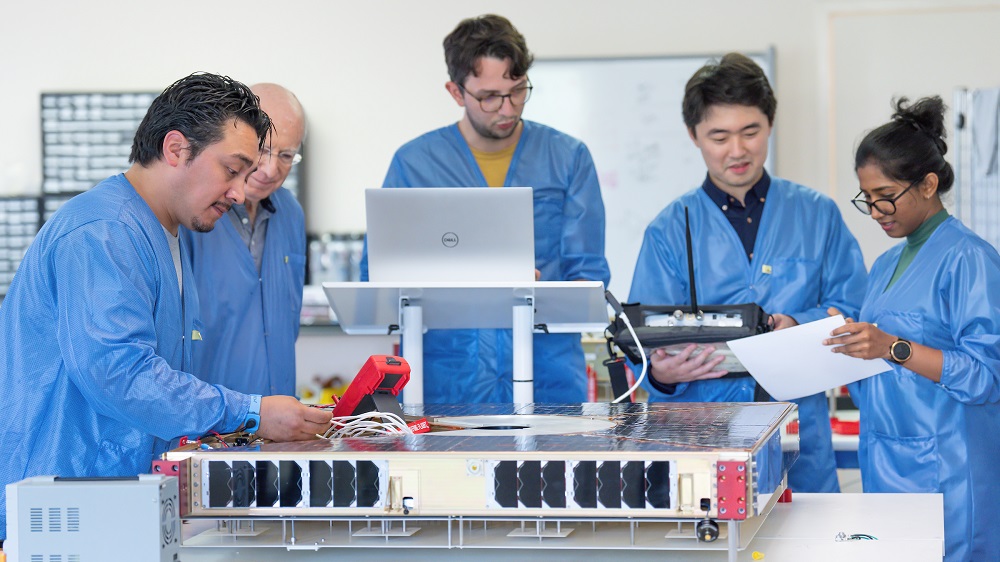TAMPA, Fla. — Lynk Global has revamped its leadership team as efforts to raise the capital needed to expand its direct-to-smartphone constellation drag on.
Chief commercial officer Dan Dooley was promoted to CEO Sept. 9, taking over from co-founder Charles Miller, who was appointed chairman of its board of directors.
John Olson, a retired Air Force General who most recently served as Mobilization Assistant to the U.S. Space Force Chief of Space Operations, was appointed president of strategic development.
The executive shake-up comes a few weeks after Lynk received a four-month extension to merge with Slam Corp, a publicly listed shell company led by former professional baseball player Alex Rodriguez.
Lynk now has until Dec. 25 to merge with the special purpose acquisition company (SPAC) in a deal that aims to raise at least $110 million for the constellation.
The deadline was extended to give Lynk time to get through the Securities and Exchange Commission regulatory process, Dooley told SpaceNews without elaborating.
The U.S. financial watchdog introduced stricter rules for SPAC mergers early this year, aligning them more closely with requirements for traditional IPOs.
Itching for funds
Slam, which originally had until February 2024 to merge with another company, has returned a sizable chunk of capital since going public in 2021 to investors who opted to redeem their shares rather than a stake in Lynk Global.
SPAC redemption rates have been high across space and other industries in recent years as shareholders sought to recover their investments amid stock market declines.
Lynk has also been seeking to raise capital alongside the SPAC merger, including plans for a $40 million Series B funding round, but has not provided an update.
SpaceX deployed Lynk’s latest two pizza-box-sized satellites during a Falcon 9 rideshare mission March 4, giving the venture five in low Earth orbit.
Lynk’s constellation is currently enabling intermittent texting and other low-bandwidth services for unmodified phones in parts of more than seven countries, including the Solomon Islands, Cook Islands and Palau.
More satellites would enable Lynk to expand coverage and lower latency for its mobile network operator partners, which are using the constellation to keep subscribers connected outside cellular coverage.
Lynk ultimately envisages 5,000 satellites in total.
Dooley declined to discuss whether future satellites are awaiting funding, citing disclosure restrictions for a company undergoing a stock process.
According to an investor presentation accompanying a regulatory filing Feb. 5, the venture aimed to operate 38 satellites before the end of 2025 to help bring in $100,000 in revenue for that year.
However, Lynk also faces growing competition in the emerging direct-to-smartphone market.
After a series of manufacturing and launch delays, AST SpaceMobile is counting down to the launch of its first five production satellites on a Falcon 9 rocket Sept. 12.
AST SpaceMobile raised $417 million from merging with a SPAC in 2021, taking advantage of a spike in investor appetite for the market along with other young space companies.
Meanwhile, SpaceX has launched more than 100 satellites for a rival direct-to-service it plans to begin rolling out this year following regulatory approvals.
